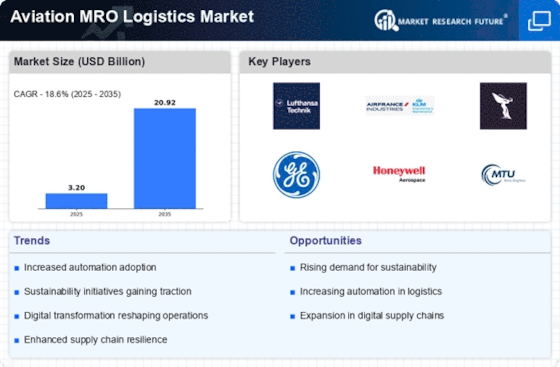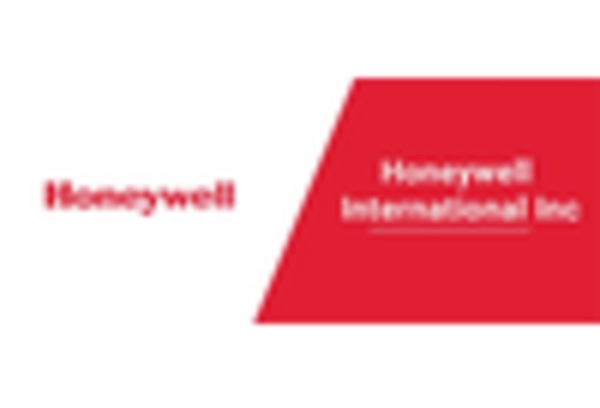Market Share
Aviation MRO Logistics Market Share Analysis
The Aviation Maintenance, Repair, and Overhaul (MRO) Logistics market form a critical segment of the aviation industry, providing essential support services for the maintenance and upkeep of aircraft. Companies operating in the Aviation MRO Logistics sector employ a variety of market share positioning strategies to distinguish themselves and thrive in this highly competitive and complex industry.
One primary strategy involves the implementation of advanced technologies in logistics operations. Given the intricacies and time-sensitive nature of MRO activities, companies invest in cutting-edge technologies such as RFID tracking, real-time monitoring systems, and data analytics. These technologies enhance the efficiency of logistics processes, allowing for precise tracking of spare parts, streamlined inventory management, and timely delivery of components to maintenance facilities. By staying at the forefront of technological integration, companies aim to position themselves as leaders in providing innovative and efficient MRO logistics solutions.
Collaboration and strategic partnerships play a pivotal role in market share positioning within the Aviation MRO Logistics sector. Companies often form alliances with aircraft manufacturers, airlines, and MRO service providers to create integrated supply chain solutions. Collaborative efforts contribute to improved coordination, reduced lead times, and a more synchronized flow of parts and materials. By positioning themselves as key collaborators in the aviation supply chain, companies can enhance their credibility and influence in the market.
Moreover, regulatory compliance is a fundamental aspect of market positioning in the Aviation MRO Logistics industry. Given the stringent safety and quality standards in aviation, companies must adhere to regulations set by aviation authorities and international organizations. Compliance with certification requirements ensures the reliability and airworthiness of the components being transported. Companies that actively engage with regulatory bodies, obtain necessary certifications, and consistently meet or exceed compliance standards position themselves as trustworthy and compliant logistics providers in the aviation MRO sector.
Customer-centric strategies are pivotal for market share positioning in the Aviation MRO Logistics market, where customers include MRO service providers, airlines, and aircraft manufacturers. Understanding the unique needs and operational challenges of these customers allows companies to tailor their logistics solutions accordingly. Providing responsive customer support, flexible logistics options, and value-added services enhances the overall customer experience. Companies that prioritize customer satisfaction are more likely to establish long-term relationships, secure repeat business, and strengthen their market share within the aviation logistics industry.
Furthermore, geographical expansion is a key strategy for market positioning in the Aviation MRO Logistics sector. With the global nature of aviation operations, companies seek to establish a strong presence in key aviation hubs and regions. This involves adapting logistics solutions to meet regional requirements, forming partnerships with local logistics providers, and participating in the global supply chain network. By strategically expanding their reach, companies can tap into emerging markets, address specific regional needs, and solidify their position as leading suppliers of MRO logistics services.


















Leave a Comment